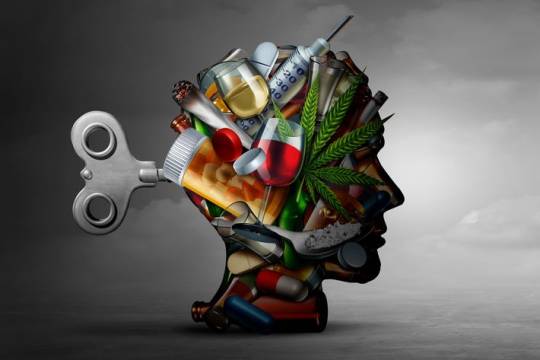Text
Avoiding Relapse After Completing Rehab
Once someone completes drug rehab and maintains sobriety, they wonder about the next steps needed to keep staying sober. After all, family connections are essential to us—we rely heavily upon family members for emotional support. Unfortunately, reaching out to loved ones too soon after completing treatment may backfire by causing potential relapse. Instead, friends and peers who understand recovery principles are better resources to draw on in times of crisis.
During recovery, your primary goal shouldn't be to meet others who've successfully recovered; instead, you should spend quality time developing healthy relationships and making meaningful changes in your daily routine. Ask yourself questions like, “What kind of person do I want to become?”, “Who would I like to be?” and “How am I transforming myself?”
By asking yourself these sorts of questions, you'll cultivate the mindset needed to remain motivated throughout the journey. Doing so allows you to feel confident, knowing that you're doing everything possible to achieve success.

Yet another critical element involves finding something entertaining to do each day. There are many things that people love to do, including playing sports, going fishing, gardening, baking, exercising, learning how to cook, watching movies, reading books, volunteering at local nonprofit organizations, hanging out with friends, and engaging in countless other activities.
Whether your goals are to spend less time drinking alcohol, stop smoking cigarettes, quit gambling, or develop healthier eating habits, you already know what you should be doing. So now your challenge is to figure out exactly which behaviors you'd like to change and which specific actions you intend to perform.
Set realistic expectations about how quickly you expect changes to come about. Remember that breaking unhealthy patterns requires practice and consistency. However, once you've established healthy routines, stick to them.
Don't give up too quickly, even after failing several times. Finally, remember to savor victories along the journey rather than wallowing in defeat. Be grateful whenever you succeed at achieving small milestones toward reaching your overall objective. After all, "A little progress is better than none."
Last but not least, here is one final tip that will help you stay clean moving forward:
Many recovering addicts still struggle with emotional triggers that lead them right back into old habits. But staying focused on your goals and taking steps toward recovery is critical to avoid relapses.
Remembering what motivated you to seek treatment initially will keep you strong throughout each day, especially during challenging moments where temptations arise. As soon as negative thinking begins to creep in around urges to drink or do drugs, repeat positive affirmations aloud until they sink in. By focusing on how great it feels to stay sober, you'll reinforce the truth behind your decision to quit drinking or using substances.
Keeping busy while remaining productive, mentally active, physically fit, and socializing regularly will all contribute to developing a solid support system should bad days rear their ugly heads. Finally, learning to cope effectively with stressors or unwanted situations will prevent future slips. You can better manage stressful emotions and avoid triggering relapse triggers by practicing mindfulness techniques.
If you follow the steps mentioned earlier, you will surely decrease your risk of relapsing later. Allowing yourself to feel hopeful about staying sober takes commitment and persistence, but once you begin to see progress, you'll quickly realize how easy maintaining abstinence becomes.
After beginning to understand what it feels like to stay sober, don't forget to tell everyone around you about your journey to recovery. Helping others overcome their struggles can motivate you to continue pursuing total wellness instead of addiction.
Seeing yourself overcoming past obstacles inspires others to accomplish great things too. Finally, recognizing that you overcame past difficulties gives you the strength to face the present ones head-on.
Sobering facts about addiction include that, according to National Institute on Drug Abuse statistics, alcoholism alone costs our country $223 billion annually in medical expenses, lost productivity, criminal justice system involvement, and lost tax revenue.
Furthermore, alcohol abuse among children under 18 years old causes nearly 3,000 deaths per year due to motor vehicle crashes, violence, suicide attempts, and homicides. The adverse effects of substance use disorders reach far beyond individual health outcomes.
Substance abusers lose opportunities to pursue educational and vocational goals, contribute positively to society by contributing to families and communities, and achieve the personal maturity necessary for healthy development into adulthood.
1 note
·
View note